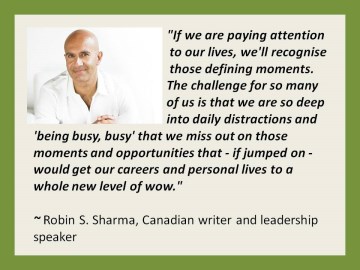STAGES OF CHANGE
Perhaps it’s the change in weather that’s brought this on, but I’ve been hearing from many people lately about their wanting to change, not able to change, unwilling to change, needing to change, being afraid to change. Whether you are thinking of ending an unhealthy relationship, changing the way you eat, changing jobs or giving up an addiction, it may help you to become aware of the stages of change.
There are six stages of change. The first is the “Pre-contemplation” stage. At this point, you are really not aware that you have a need to change. You will find yourself rationalizing your behaviour, defending yourself against the need to change or maybe even blaming someone else for the situation in which you find yourself.
Second is the “Contemplation” stage. This is when you start to think there may be a problem that needs to change. You become curious and start looking for information. You may develop an urge to gain more insight into what is happening, perhaps developing a desire to make a change. This is where most people procrastinate. It is a good idea to ensure you have developed good stress management skills to handle any stress that may arise from this point and beyond.
The third stage is the “Preparation” stage. You seriously begin to look at options to make the change. Your view is changing from the past to the present as you become ready to make new choices. You might talk with others about how they accomplished the change you wish to make. You will work through the obstacles in your path and the challenges you may face. Change is becoming a priority. You develop a plan to make the change. This is a time of decision making and commitment to change.
Now you have arrived at the fourth stage – the “Action” stage. You work through the old thoughts, feelings and behaviours that kept you stuck. You will probably ask for help to work through the painful emotions, the hurt and the effort to make the change. People will notice that you are changing. Sometimes, people in your life will not like the changes you are making, and you will get “change back” messages. You might need help to resist going back to the old behaviours, to keep making progress.
After the Action stage is the “Maintenance” Stage. In this stage, you are moving towards a healthy balance, re-evaluating your new behaviours and making necessary adjustments along the way. You have developed new, healthy habits. However, you must remain vigilant in order not to revert back to your old behaviours.
You have now arrived at the stage where your new habits are established and no longer require the same amount of vigilance. Make sure you give yourself a reward for your accomplishment and continue to practice the new behaviour!
Paths to Change provides one-on-one counselling as well as coaching to reduce stress, overcome procrastination and become better at self-care.
Judith Tremblay has spent over 20 years developing the skills to assist people to make changes in their lives. She believes that we all have the knowledge and solutions we need within us, and with guidance and support, we can make the changes we must to reach our potential and enjoy a more fulfilled life.
Check out the Paths to Change website.







Connect with us Online